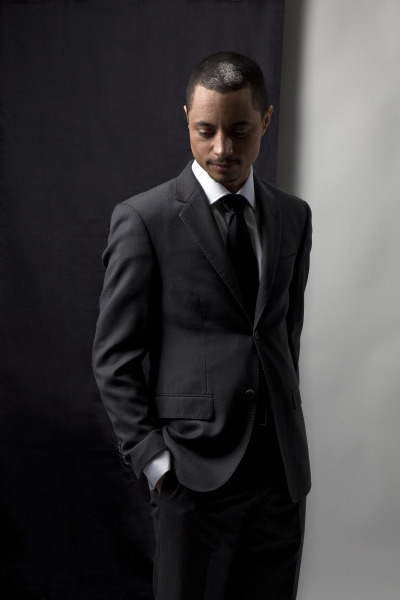
Cast your mind back to last year’s London Jazz Festival and the Impulse Records night. Tenor saxophonist Chris Potter, joining the trio of the great pianist and composer McCoy Tyner, forever associated with the John Coltrane Quartet, was there on stage, as was a suited and booted José James performing a concert at the Barbican themed around the John Coltrane And Johnny Hartman album.
Two years earlier, this time a few miles away at Ronnie Scott’s in Soho, James was the headliner, following on from the promise of his album The Dreamer but again channelling Coltrane with the gig catching fire on ‘My Favorite Things’ and the tremendous opening to ‘Equinox’ the song that first caught Gilles Peterson’s ear when the DJ signed him to his label Brownswood although the song could not be included on the album. So you had to hear it live. But when the singer now 34 who’s from Minneapolis but living these days in Brooklyn moved to the highest end of his range harmonising with soprano saxophone on ‘Naima’ it was plain for anyone there on the night that James was truly special. But the conundrum remained: which direction would he go in?
There’s been a fair amount of water under the bridge since even the LJF date just under a year ago with McCoy. James has returned to a clubbier vibe, and was signed to Blue Note this year most recently in London supporting Robert Glasper at the iTunes fest in the Roundhouse and playing Shoreditch’s Bedroom Bar the following night. No Beginning No End, his first release for his new label, does not come out until towards the end of January next year, but such has the buzz been already it’s a good chance before all the fuss around the physical release to look ahead to what promises to be a huge breakthrough for the talented singer. The 11-track album has a very clever retro feel to it, gathered around songs like the insistent laidback third track ‘Trouble’, a song that recalls the impact of hearing a song such as ‘Rehab’ for the first time. It’s clear that the album is a game changer for James moving him into a different area within popular music but retaining enough interest to appeal to jazz fans who have followed his career from the early Brownswood days. Soul seems to be more a natural fit for James than his earlier dabblings in hip hop, say, on the album Black Magic. The rest of the new album is just as strong and for me ‘Bird of Space’, the ninth track is the ultimate song on the record with lyrics and music by James with Fender Rhodes, guitar and drums although it doesn’t have the instant appeal and groove of ‘Trouble’. It might stay with you longer, though. The album opens with ‘It’s All Over Your Body’, which has a seductive feel that increasingly is also James’ direction. Bassist Pino Palladino who is one of the producers of the album, along with JJ and Brian Bender, appears on most of the tracks, and there are some guest vocalists for James to duet with, for instance Hindi Zahra on ‘Sword and Gun’, and Emily King on ‘Heaven on the Ground.’ This is soul coming at you from a very different angle to say Gregory Porter on Be Good, but the two have things very much in common, supreme musicianship and individualism, however James even plays with the fine keyboards player Grant Windsor and broken beats drum stylist Richard Spaven, the piano/drum team who perform from time to time with Gregory and who joined him for his Pizza Express Jazz Club show in July when Jamie Cullum guested.
Alistair White who was performing with Van Morrison at Ronnie Scott’s this week sounds great on trombone as does the trumpeter Takuya Kuroda who makes you think back to the freshness of acid jazz horn sampling days when Blue Note opened up the vaults back in the 1990s for DJs to breathe some new freshness into the old stuff, and Lee Morgan became a kind of hipster king all over again. Kuroda and White sound mighty fine together as they did live at the Roundhouse. The other track worth mentioning at this stage is ‘Vanguard’, and it’s every bit as good as ‘Trouble’, again with lyrics by JJ but music by Robert Glasper no less, with Glasper on Fender Rhodes, Chris ‘Daddy’ Dave on drums and Palladino again.
So an album to get excited about and look forward to, and a great way of working towards that old music industry phrase built on a certain intuitive common sense, leaving aside the Ray Charles resonance, but retaining that feeling you just know once you’ve heard the magic even once: jazz + soul = genius.
Stephen Graham
Pictured José James
Here’s a version of ‘Trouble’ in session: http://www.youtube.com/watch?v=5Gz2kqOupCI